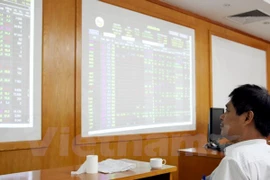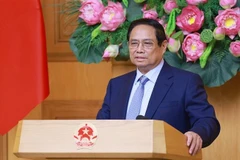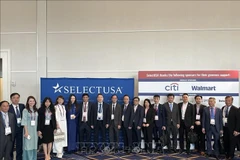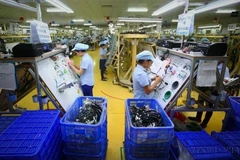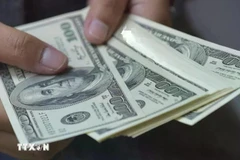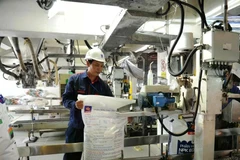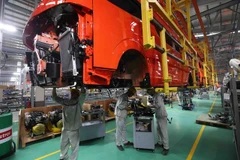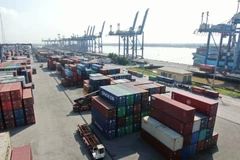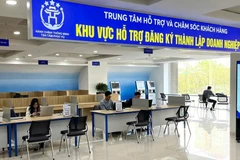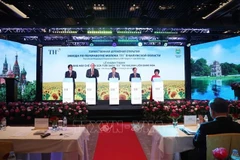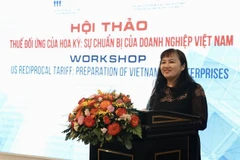Hanoi, (VNA) - Capping interest expenses helps make the financial situation of businesses and the national economy healthier, according to tax experts.
However, many enterprises have said that the control of interest expenses can help increase budget revenue in the short term but in the long term, the revenue is not certain to be sustainable.
Concerns
A series of documents sent by big enterprises to the Ministry of Finance late 2018 mentioned concerns over the application of Decree 20/2017/ND-CP.
According to the decree which took effect in May, 2017, total interest expense incurred in an accounting period of a business will be deducted from the taxable corporate income when it does not exceed 20 percent of the total net profit of business operation plus interest and depreciation costs during the period.
This means that if the interest expense exceeds 20 percent, it will be considered unreasonable and taxable.
In a document sent to the Ministry of Finance, the Electricity of Vietnam (EVN) stated that if this regulation is applied, the EVN and its subsidiaries will suffer an increase of hundreds of billions VND in corporate income tax.
The Vietnam Construction and Machinery Installation Corp (Lilama), the Vietnam National Coal and Mineral Industries Group (Vinacomin), and the Vietnam Cement Industry Corporation (VICEM) also raised concerns over this.
Speaking to the Vietnam News Agency, economist Can Van Luc said Decree 20/2017/ND-CP has helped Vietnam be closer to international practices, reflecting the country’s responsibility in preventing the erosion of the tax base.
However, Luc said the cap of 20 percent is not appropriate because it is easy to surpass even for large enterprises with strong financial potential.
According to former Deputy Minister of Construction Nguyen Tran Nam, companies in the new investment phase will face many difficulties when interest expenses are high and not tax deductible. This could make businesses hesitate to expand their investment.
"In the short term, it seems that the State will collect more taxes, but in the medium and long term, the revenue would be reduced because businesses do not have motivation to do business," Nam said.
Nam added that the regulation is inconsistent with the principle of business freedom which was stated in the Law on Enterprises in 2014.
He cited current regulations, saying enterprises have the right to freely borrow capital and legally mobilise financial resources to invest in business development. Therefore, the rule on controlling interest expenses in Decree 20 are not consistent with the principle of respecting business freedom.
Should the cap be raised to 30 percent?
Commenting on the opinions of Vietnamese enterprises, deputy head of the General Department of Taxation Cao Anh Tuan said other countries have made recommendations on controlling interest expenses between 10-30 percent, and Vietnam has chosen to fix the cap at 20 percent.
He said no FDI enterprise doing business in Vietnam has complained about this issue because they know it is common across the world.
Tuan noted that the current cap helps not only the financial situation of enterprises, but also the national economy become healthier.
However, lawyer Truong Thanh Duc, Chairman of the Members' Council of Basico law firm, said if the total interest expense is more than 20 percent, even 50 percent, and it is a real, legal and reasonable expense, it needs to be accepted.
Meanwhile, Vietnamese enterprises are facing a shortage of capital, and they lack credit to borrow at low interest rates, so they have to borrow at high rates, he said.
He pointed out that the cap was enforced to limit the transfer pricing, which leads to tax loss.
Economist Luc said the control rate should be at 30 percent instead of 20 percent, citing the examples of many countries like the US, member countries of the European Union, and the Republic of Korea, and India, which apply the cap at 30 percent. Indonesia is also considering applying a cap at 30 percent./.

